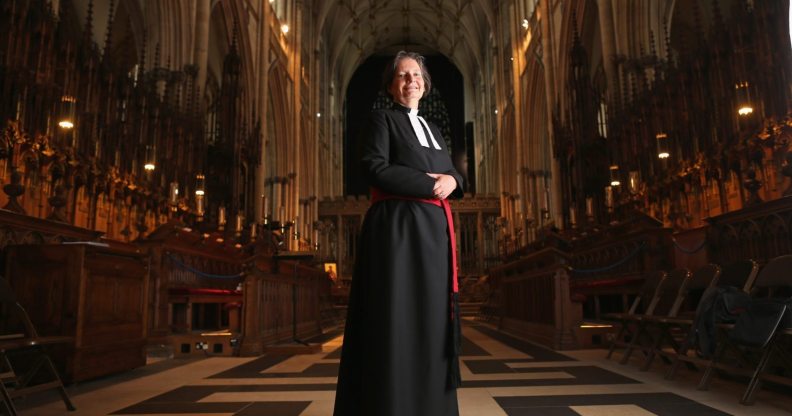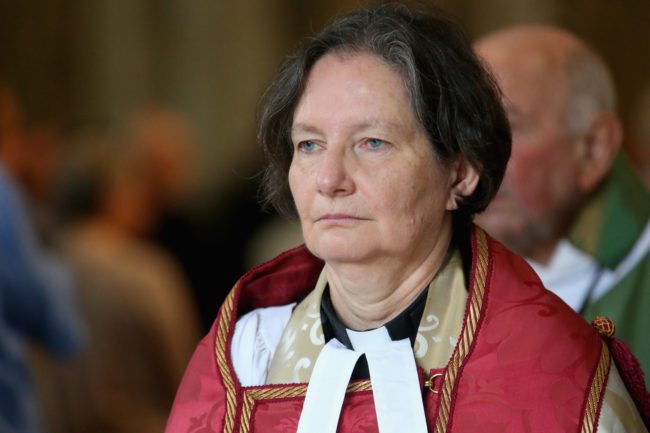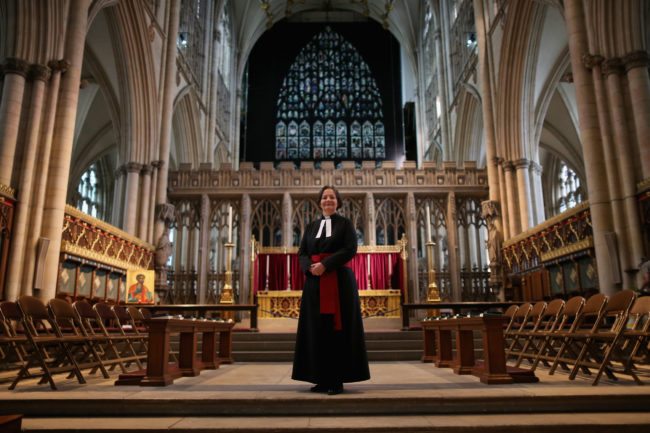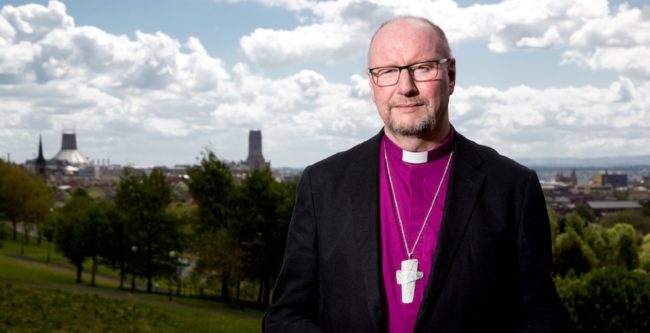New Church of England bishop: Church must stop driving away gay people

The Very Reverend Vivienne Faull, poses for a portrait inside York Minster on May 29, 2014 in York, England. (Christopher Furlong/Getty)
The Church of England has appointed a new Bishop who says the institution must do more to reach out to LGBT Christians.
It was announced this week that Rev. Vivienne Faull, who is currently Dean of York, would become the next Bishop of Bristol.
She is the fifteenth woman to be made a bishop since the ban on female Bishops was lifted in 2015.
Faull said: “It was 24 years ago that Bristol was the first diocese to ordain women as priests, and I want the diocese to continue to show that pioneering courage.
“I look forward to leading a church that shows the love of Christ to everyone, whoever they are.”
Christian Today notes that Faull is an outspoken supporter of LGBT-inclusive Christianity, who has previously criticised the Church’s “dreadful” stance on gay unions.
The Church does not permit members of the clergy to perform or bless same-sex weddings, though they are permitted to carry out informal prayers.

The Very Reverend Vivienne Faull (Christopher Furlong/Getty)
Speaking to the Radio Times in 2014, she said: “That’s a very, very significant change [on LGBT issues] and I’m not sure the House of Bishops has quite got that.
“It’s very difficult for leaders of organisations to be right in touch with how fast things are changing in the country.”
She said: “The blessing of a gay relationship is not theologically a problem for me personally, but I’m under the discipline of the Church and I keep the rules.
“[But] when people have come to me in the past and said, ‘We’re looking for a way of celebrating our civil partnership, how shall we do it?’, we’ve found ways of doing it.”
She added of the Church’s ban on gay blessings: “I’m getting approached by young people of the same gender planning their marriages.
“They understand in their heads what the Church’s position is, but they no longer understand in their hearts.
“It’s driving people away and that’s dreadful.”
Faull joins a number of other Bishops who believe in reform on the issue.

The Very Reverend Vivienne Faull (Christopher Furlong/Getty)
Two Church of England bishops recently called for the institution to give up its legal right to discriminate against gay people.
Bishop of Liverpool Paul Bayes said the Church should give up its Equality Act exemption which allows it to legally discriminate against gay people as part of an LGBT-inclusivity push.
The bishop said: “We want to ask the churches to answer the question – if we mean what we say about opposing homophobia, if we believe what we say about wanting to include everyone, if we believe that God made every one they are, then what does that imply for our public polices?
“We will advocate for a greater openness and the implication of that is we may have to reexamine the prohibitions that are there in law at the moment. I hope for a future whereby people like Jeremy can feel that their ministry can be exercised and that they can love the person they love freely.”
The bishop also hinted that Marriage (Same Sex Couples) Act 2013, which explicitly bans the Church of England from carrying out same-sex weddings, may also eventually have to be re-written.

He added: “I don’t think we should just ignore what the government has done and I certainly don’t think the government should tell the Church what to do.
“But I do think we should continue to advocate for greater freedom and in the end who knows what that will mean? It may mean that one day it will be possible for people in a same-sex relationship to have that relationship affirmed in a way that is now illegal and in that case we would have to change the law.”
The Bishop of Buckingham Alan Wilson, a strong supporter of LGBT rights, also previously called for the Church of England to give up its opt-outs from LGBT equality laws as it modernises.

Wilson said: “The Equality Act is used as an accountability standard in modern Britain.
“It describes how we understand public accountability in every institution except the church. That does seem quite extraordinary.”
“If the church were far more observant of the Equality Act, then deep structures of abuse, homophobia and sexism would not be embedded in the church in the way they are. It’s in Romans 13.”
The Bible passage states: “Let everyone be subject to the governing authorities, for there is no authority except that which God has established. The authorities that exist have been established by God.”

